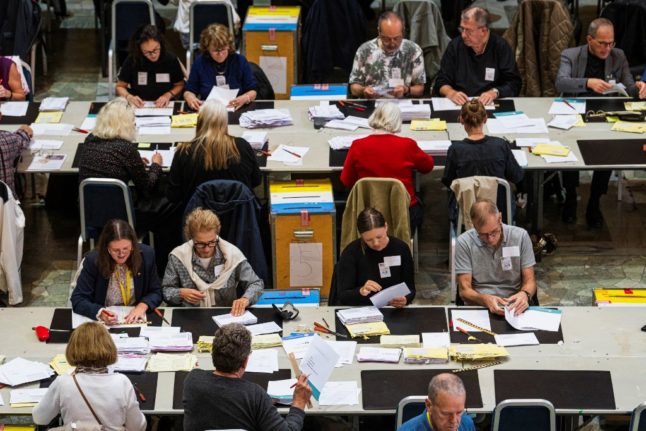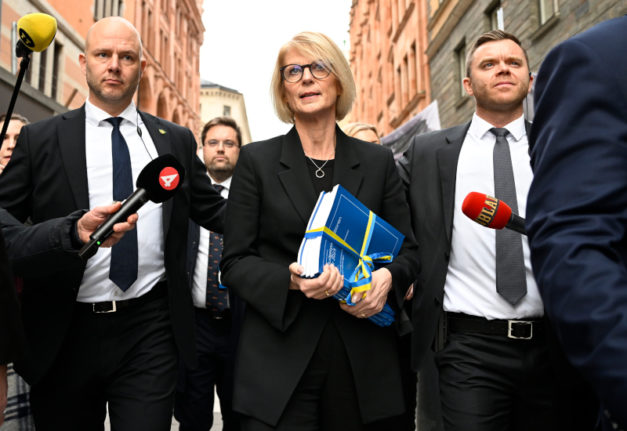Never before has a Swedish government relied on the support of the anti-immigration and nationalist Sweden Democrats, the big winners of the vote. The party has so far won more than 20 percent of ballots, becoming the second-biggest party behind outgoing Prime Minister Magdalena Andersson’s Social Democrats, which have dominated Swedish politics since the 1930s.
The final results were expected by day’s end, the administrative director of the election authority told AFP.
“The votes are counted first and the results are expected to be ready this evening”, Anna Nyqvist said, in a country with an electorate of 7.8 million.
According to the ballots counted so far, just 47,000 votes separate the right- and left-wing blocs.
The right-wing bloc, led by conservative Moderates leader Ulf Kristersson, has been credited with an absolute majority of 175 out of 349 seats in parliament, with 174 for the left wing.
The ballots still to be counted on Wednesday included votes from abroad and those cast in advance but too late to be counted on election day, as well as ballots that required a decision on whether they were valid or not. Their exact number was not immediately known, but on the last day of counting in the previous election in 2018, there were 202,000.
Political analysts said it was unlikely the final ballots would change the result.
“The result could flip and give the left a majority, but no one really expects that”, Gothenburg University political scientist Mikael Gilljam told AFP.
‘All eyes’ watching
In Stockholm, dozens of people were seen sitting at long tables at City Hall opening envelopes with ballots, an AFP journalist reported.
“All eyes are on the Riksdag, the parliament’s, votes,” counter Eva Tofvesson Redz, 55, told AFP. “We are very careful every time we do this” but this time “there is a lot of media attention, there is a lot of political attention on this, so we are making sure that we do a good job”, she added.
The exact make-up of possible governments on both the left and the right remained uncertain. In the most widely expected scenario of a right-wing victory, the thorny question remains of whether the far-right would be given cabinet posts.
The Sweden Democrats rose up out of neo-Nazi groups and the “Keep Sweden Swedish” movement in the early 1990s, entering parliament in 2010 with 5.7 percent of votes. Long shunned as “pariahs” on the political scene, the party has registered strong growth in each subsequent election as it made efforts to clean up its image. Its hardline stance on soaring gang shootings and integration set the tone in this year’s election.
The party has said it wants to be in government, but its three allies — the Moderates, Christian Democrats and Liberals — are reluctant to agree to that. Instead, the far right would most likely provide informal support in parliament to the government, according to political analysts.
A right-wing government would also be very fragile, with the four parties fiercely opposed on a number of issues, especially the Liberals and Sweden Democrats. The man likely to be Sweden’s next prime minister, Ulf Kristersson of the Moderates — who was the first party leader to welcome the far right in from the cold in 2019 — would therefore struggle to hold his majority together.
“This is a difficult parliamentary situation”, Gilljam said, pointing to there being just one seat’s difference between those held so far by the right-wing bloc and their leftist rivals.
“And then you have parties that don’t like each other, the Sweden Democrats and the Liberals” in the same right-wing bloc, he added.



 Please whitelist us to continue reading.
Please whitelist us to continue reading.
Member comments